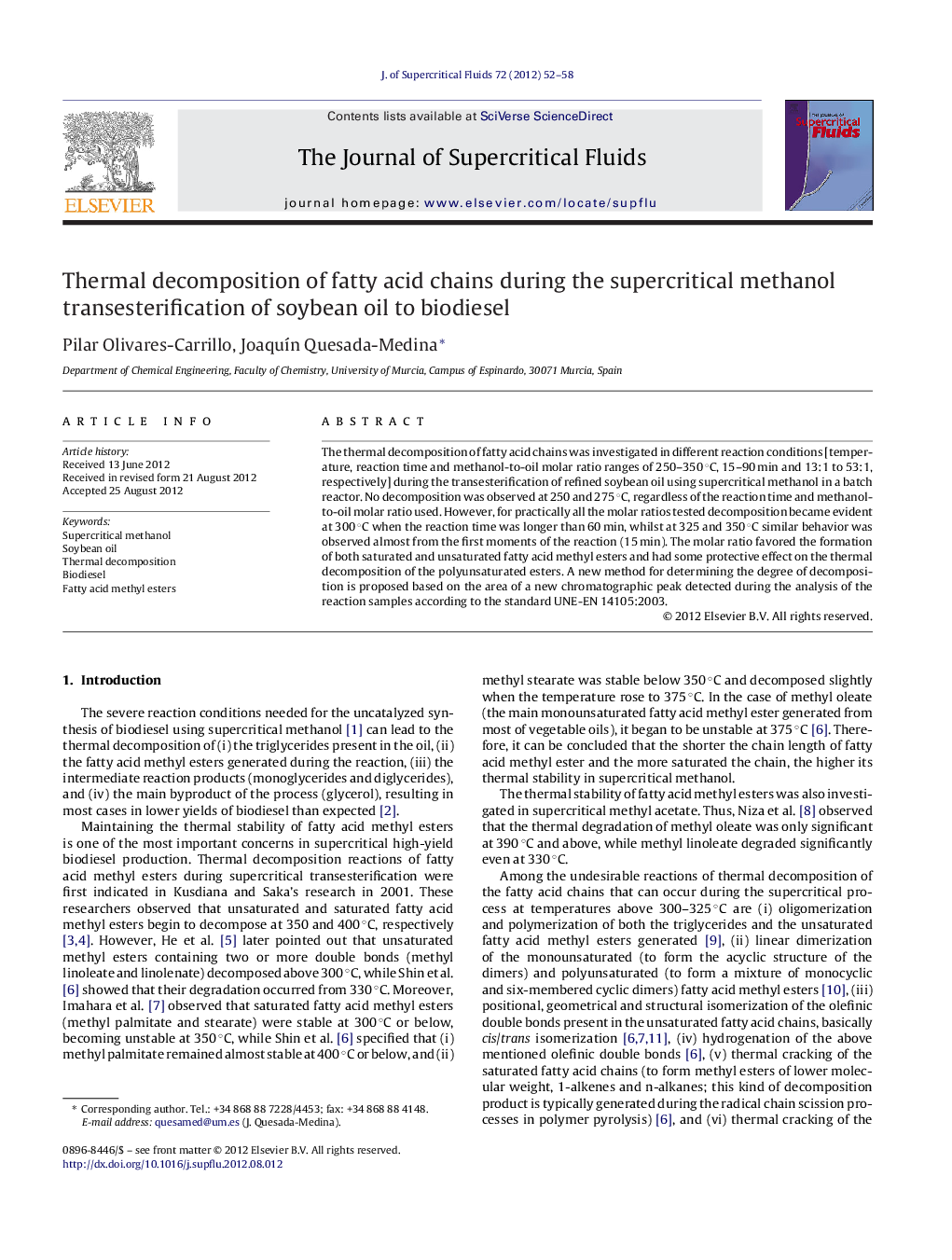| Article ID | Journal | Published Year | Pages | File Type |
|---|---|---|---|---|
| 230976 | The Journal of Supercritical Fluids | 2012 | 7 Pages |
The thermal decomposition of fatty acid chains was investigated in different reaction conditions [temperature, reaction time and methanol-to-oil molar ratio ranges of 250–350 °C, 15–90 min and 13:1 to 53:1, respectively] during the transesterification of refined soybean oil using supercritical methanol in a batch reactor. No decomposition was observed at 250 and 275 °C, regardless of the reaction time and methanol-to-oil molar ratio used. However, for practically all the molar ratios tested decomposition became evident at 300 °C when the reaction time was longer than 60 min, whilst at 325 and 350 °C similar behavior was observed almost from the first moments of the reaction (15 min). The molar ratio favored the formation of both saturated and unsaturated fatty acid methyl esters and had some protective effect on the thermal decomposition of the polyunsaturated esters. A new method for determining the degree of decomposition is proposed based on the area of a new chromatographic peak detected during the analysis of the reaction samples according to the standard UNE-EN 14105:2003.
Graphical abstractFigure optionsDownload full-size imageDownload as PowerPoint slideHighlights► Thermal degradation began to appear at 300 °C and 60 min regardless of the molar ratio used. ► The molar ratio favored the formation of both saturated and unsaturated fatty acid methyl esters. ► The molar ratio seems to protect the polyunsaturated fatty acid methyl esters from decomposition. ► The standard UNE-EN 14105:2003 can also be used to quantify the degree of thermal decomposition.
